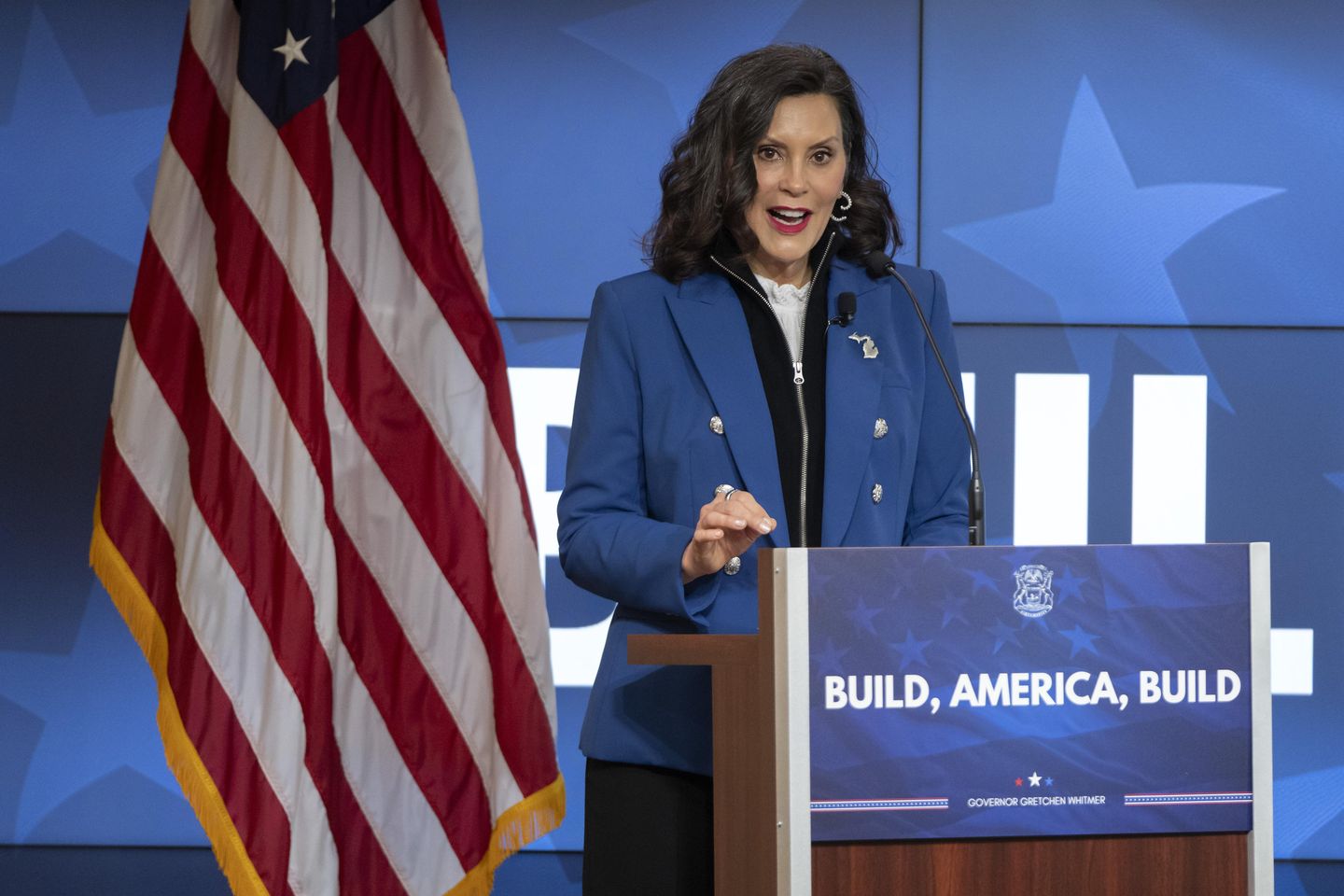
Michigan Gov. Gretchen Whitmer on Wednesday said President Trump’s latest tariffs have shaken her state’s auto industry, forcing companies to stockpile car parts, lay off workers and raise prices amid slowing sales.
Ms. Whitmer said she supports Mr. Trump’s push to usher in a golden era of manufacturing but added it should be more targeted.
“I am not going to sugarcoat it. These last few days have been really tough for Michigan,” Ms. Whitmer said in a “Build, America, Build” address in the District of Columbia, where she called for more political bipartisanship. “Twenty percent of the economy is tied to the auto industry, which depends on a steady flow of goods from our largest and closest trading partners.
“So it really is a triple whammy: highest costs, fewer jobs and more uncertainty, and it couldn’t come at a worst time.”
At the same time, Ms. Whitmer said she agrees with Mr. Trump that “we do need to make more stuff in America — more cars and chips, more steel and ships,” and she added, “I am not against tariffs outright, but it is a blunt tool. You can’t just pull out the tariff hammer to swing at every problem without a clear defined end goal.
“Strategic reindustrialization must be a bipartisan project that spans multiple presidential administrations. To get it done, let’s work with our friends and compete against our adversaries.
“Let’s make more ships, planes and semiconductor chips in America. Let’s cut red tape and unleash the extraordinary potential of American industry. Let’s give more hardworking people a fair shot at a decent life. And let’s usher in, as President Trump says, a ’Golden Age’ of American manufacturing.”
Ms. Whitmer has been urging elected leaders to dust off the bipartisanship playbook in the aftermath of the 2024 election, vowing to find common ground with Mr. Trump and Republicans in Lansing, the capital of her state, on the biggest challenges facing people.
The message has fed into the belief that Ms. Whitmer wants to strengthen her moderate brand ahead of a likely bid for the party’s 2028 presidential nomination.
It has also offended the liberal wing of the Democratic base, which plays a dominant role in the nomination process.
Ms. Whitmer has portrayed Michigan as a microcosm of the nation, arguing that the economic challenges her constituents face — inflation, rising costs and uncertainty — are the same obstacles facing Americans across the nation.
She reiterated that message during her trip to Washington, where she celebrated bipartisan efforts to expand shipbuilding, including Mr. Trump’s vow to establish an office of shipbuilding in the White House.
“We need a consistent national strategy united around a new economic consensus that a lot of Democrats and Republicans now share. Let’s make stuff in America,” she said. “If that’s what we believe, then we should be able to celebrate good policy no matter where it comes from and also criticize bad policy wherever it comes from.”












